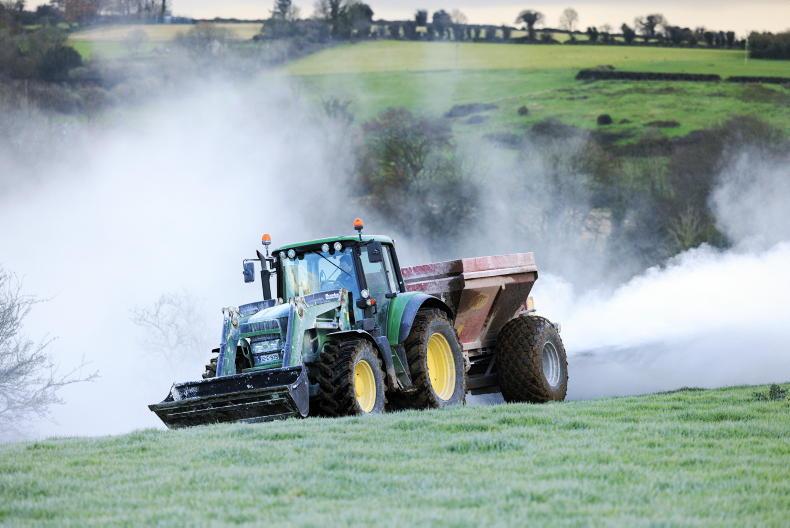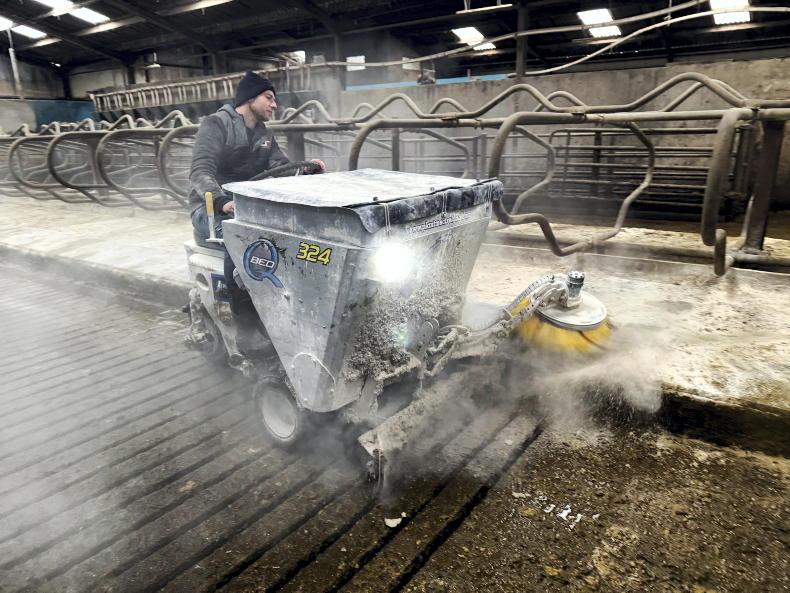Some 41,000 farmers have applied for the new national liming programme, the Minister for Agriculture has confirmed.
Collectively, they have sought funding for some 4.5m tonnes of lime – more than four times the annual lime application in a typical year.
Minister for Agriculture Charlie McConalogue described the remarkable application rate as “a show of environmental strength” by farmers.
Budget oversubscribed
The budget for the scheme is €8m, but the number of applications and amount of lime applied for (4.5m tonnes) would require funding of €72m to meet the demand, at a grant rate of €16/t.
Farmers applied for just over 111t each on average.
The Department of Agriculture has said that despite the massive oversubscription, the programme will limit approvals to stay within its allocated budget of €8m.
There are no details yet on how this limiting will be applied, with the Department saying it will be “communicating directly with each applicant in due course”.
Enormous demand
Minister McConalogue said he will now assess how best to step forward in light of the enormous demand.
“The innovative and pioneering national liming programme has been a huge success and underlines clearly how engaged farmers are in soil fertility and reducing their chemical fertiliser usage.
"I very much welcome how farmers have engaged with this new programme and the fact applications are well ahead of farming norms – this is a tremendous show of environmental strength by farmers,” he said.
“I want to see how best we can step this forward to ensure as much lime as possible can be spread this year.”
“We need to correct soil pH on a significant proportion of our farmland to improve environmental and economic sustainability and reduce overall emissions from the sector.
"With this in mind, it is great to see how farmers have engaged in soil sampling over recent months and we will now hopefully see that translate into improved nutrient management planning, resulting in targeted lime and fertiliser application in line with crop requirements,” he added.









SHARING OPTIONS